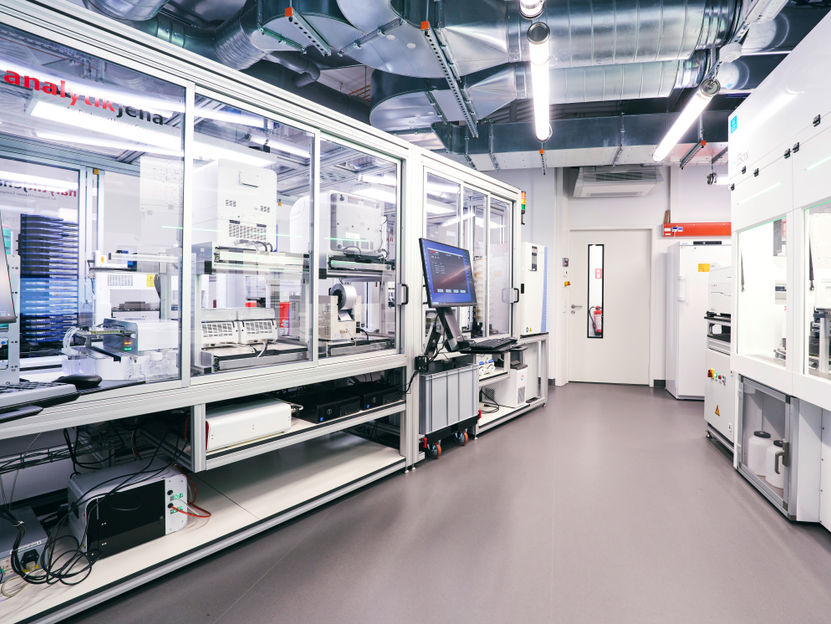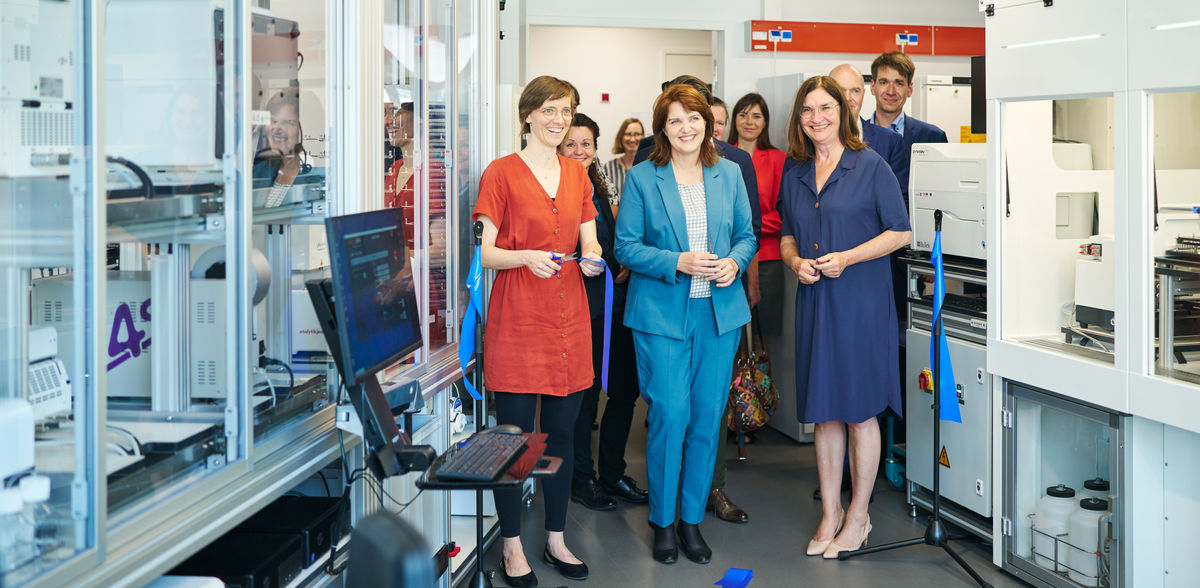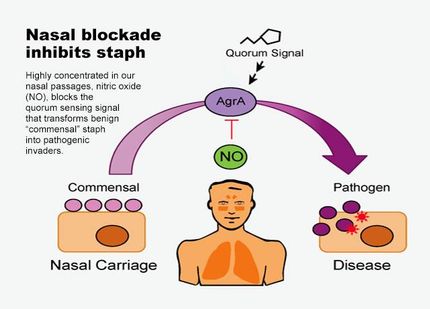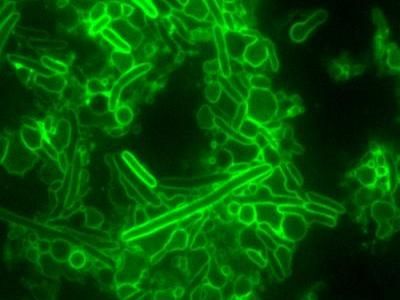New robotics platform for accelerated antibiotic development
Leibniz-HKI and Analytik Jena develop facility for automated testing of drug candidates
Advertisement
A new robotics platform was inaugurated at the Leibniz Institute for Natural Product Research and Infection Biology (Leibniz-HKI) on Thursday, June 15, 2023, in the presence of Thuringia's State Secretary for Research, Innovation and Economic Development. The highly modular facility serves the institute to accelerate the discovery of new antibiotics and is unique in Germany's academic sector in its combination of size, degree of automation and flexibility. The robotics platform was designed and built in close cooperation with Analytik Jena GmbH+Co. KG.

Robotics Plattform at Leibniz-HKI
(c) Anna Schroll/Leibniz-HK
The antibiotics crisis is one of the greatest medical challenges of our time. Increasing resistance means that people are once again dying from bacterial infections that were long considered to be easily treatable.
At the same time, the pharmaceutical industry has largely withdrawn from the less profitable development of new antibiotics. A major reason for this is lack of profitability: antibiotics are used sparingly, sold at low prices, and also have short treatment durations.
Publicly funded research is trying to close this gap. "As a state, we provide targeted support for application-oriented research in order to take the results all the way to value creation in Thuringia," said Katja Böhler, State Secretary for Research, Innovation and Economic Development at the Thuringian Ministry of Economic Affairs, Science and Digital Society. She referred in particular to the innovation umbrella program "Thuringia MOTIVation," which bundles all related funding instruments. "Future-oriented cooperation between science and industry makes Jena and Thuringia a high-tech location with many highly qualified jobs. The new robotics facility is an example of how well this interplay between public and private players works here in the state."
"Antibiotic development with the help of public research funding is a major challenge that our institute is taking on," says Pierre Stallforth, deputy director and project leader of the new robotics platform at Leibniz-HKI. This was achieved most recently with the tuberculosis agent BTZ-043, which was discovered at Leibniz-HKI and further developed in cooperation with academic partners and industry.
In the future, the new robotics platform set up at the HKI Biotech Center should be able to perform experiments faster and more accurately, as repetitive steps are always carried out in exactly the same way. "The combination of automation, data analysis and innovative research approaches increases the chances of success in identifying new antibiotics," explains Luzia Gyr, head of the facility.
The technology platform was designed in close development cooperation with Analytik Jena. The most important requirement of the future users was that the system should be as flexible as possible. "Industrial plants are normally characterized by a fixed process sequence. Here we have a platform that is equipped for the future and can respond to the high variability of the research topics of the institute and its partners," explains Matthias Fischer, team leader of automation at Analytik Jena. And Lars Böttcher, Vice President of Technology at Analytik Jena, adds: "The project was technically very demanding, but due to the short distances and the very intensive coordination of all participants directly on site, it could be realized in a relatively short time."
The construction of the modern facility was only made possible by extensive public funding. It was largely funded by the German Federal Ministry of Education and Research as part of the Zwanzig20 consortium InfectControl and its follow-up projects. Additional funding was provided by the German Research Foundation as part of the Balance of the Microverse cluster of excellence and by the state of Thuringia with money from the European Regional Development Fund (ERDF). The total volume of the investment is three million euros. In addition, the Free State of Thuringia is funding the RoboThür research group, which has applied jointly with the Friedrich Schiller University of Jena, with one million euros, thus enabling the recruitment of highly qualified personnel for the platform.
The new robotics platform will not only be available to the Leibniz-HKI research groups, but also to the University of Jena and other research institutions and industrial partners with which the institute cooperates. The commissioning of the system, which has just taken place, will now be followed by a phase of setting up the first test series and validating the results, which will take several months.



















































